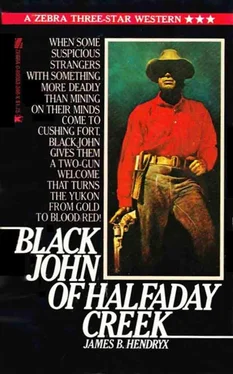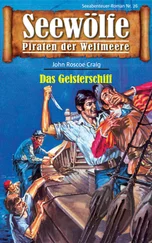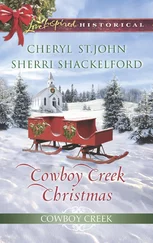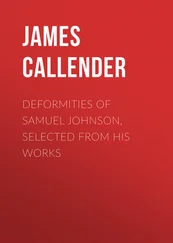Arriving at the tent, Black John threw back the flap and entered. “We’ll find out, now, if that damn cuss has got any arsenic in his outfit,” he said.
“I wouldn’t know it if I seen it,” said Swiftwater.
“It’s fine white crystals, somethin’ like sugar, only finer ground. I used to help the perfessor mix it with the plaster of Paris an’ sprinkle it on some of them skins which he hadn’t done a thorough job on whilst he was out in the bush—‘in the field,’ he called it—like it was a cow pasture, er somethin’. But that was jest his way of speakin’. An’ he had the damnedest names fer the commonest kind of a bird or a flower. A woodpecker wouldn’t be a woodpecker to him. It would be a rhinohinkus spoodukus Canadensis, er some sech a name as that. Cripes, if Cush thinks I use big words, he’d ort to know’d that perfessor!”
“Mebbe I better stay outside an’ kind of keep a lookout in case this here Cleveland would come an’ ketch us goin’ through his stuff,” suggested Swiftwater.
“It ain’t necessary,” replied Black John, his arm thrust to the shoulder into a duffel bag. “In case we should find he’s got arsenic, an’ he started to do somethin’ about it, it would ondoubtless only serve to hasten his doom. If we don’t find none we might have to resort to certain methods to make him tell where he’s got it cached—an’ it might as well be here as anywhere. He’s got a six gun, anyhow,” he added, examining a loaded pistol which he withdrew from the duffel bag and laid to one side.
Presently he withdrew his arm from the bag again, and Swiftwater saw that the huge fingers gripped a stout tin with a small screw top. He looked on with interest as Black John removed the metal cap and poured about a teaspoonful of a white crystalline substance into his palm. Without a word the big man replaced the cap, and after transferring the crystals from his hand to an empty gold sack, pocketed the sack and returned the tin to the duffel bag, being careful to replace it where he had found it in the extreme bottom of the bag.
“The stuff in that can was arsenic, wasn’t it?” asked Swiftwater.
“Such is prob’ly the case,” Black John replied. “It looks jest like what the perfessor claimed was arsenic, an’ it’s in the same kind of a can he carried it in, an’ the label says it is.”
“The dirty bastard!” exclaimed Swiftwater. “That cinches the case agin him!”
Black John shook his head. “No, not yet. Like I told you, on Halfaday our verdicks has a permanent effect on a man’s career. We don’t want to make no mistakes. I ain’t shore this is arsenic. If it is, I ain’t shore that arsenic is p’izen. It’s got that reputation—an’ the perfessor claimed it is, an’ he ort to know. But all that’s only hearsay. Besides, admittin’ that it’s arsenic, an’ that arsenic is p’izen, that ain’t sayin’ that Harrison didn’t eat some musheroons that p’izened him. An’ even if he didn’t we’ve got to find out if, beyond a reasonable doubt, Cleveland could of give him a dose of arsenic. On Halfaday, we don’t call our miners’ meetin’s till I’m damn good an’ shore a man is guilty. Even a pardner-killin’, p’izenin’ son of a bitch like this here Snook is entitled to all the breaks he kin git—an’ he generally needs ’em. Come on, we’ll slip over to Harrison’s cabin an’ see what luck old Bettles an’ Cush had with the whisky.”
CHAPTER VIII – BLACK JOHN INVESTIGATES
Circling back, the two approached Harrison’s shack from the direction of the fort. The door opened abruptly to Black John’s knock, and they entered the single room to see four men huddled together staring down at a still form on the bunk. A tin cup and a half-emptied bottle of whisky stood on the table.
“Hello, John,” Cush greeted. “This here Harrison, he’s dead. He et some musheroons he found, an’ they was p’izen.”
“Yeah, One-Armed John told us about it when we got back with the meat, so we come on up to see if there was anything we could do.”
“Wouldn’t of be’n a damn thing you could done even if you’d got here in time,” said old Bettles. “We done all anyone could. Fetched along enough whisky to cure him, if we could of got it down him. There on the table’s all there is left out of three quarts—but I’m doubtin’ if even half a pint of it stuck. You can’t cure no one if he can’t keep his medicine down. He died jest a couple of minutes ago. Guess he was p’izened, all right. A man’s a damn fool to eat them toadstools.”
“He might of got holt of some wolf p’izen by mistake,” suggested Black John. “Did he git all rigid an’ twitch around, like he was throwin’ some kind of a fit?”
“No, he jest laid there cold an’ sweaty-like. He wasn’t what you might say conscious. He moaned about his stummick hurtin’ turrible. An’ he was awful sick to it. He kep’ mumblin’ fer a drink, an’ when we’d give him the whisky, he couldn’t hold it down.”
“Did you try givin’ him a drink of water?”
“Hell, no! It takes somethin’ a damn sight stronger ’n water to cure a man as sick as he was. When whisky can’t fetch ’em around, nothin’ kin. ’Tain’t the fault of the whisky,” added the oldster, with conviction. “It would cured him if he could of kep’ it down.”
“Well, he’s dead now—no matter what ailed him,” said Black John. “You boys go on back to the fort, an’ we’ll call a coroner’s inquest to set on him. Swiftwater an’ I’ll fetch down the corpse in his canoe.”
“Pore Grover,” sniveled the man known as Cleveland, “he’s the best friend I ever had. We was sech good friends that each one of us made out a will, leavin’ all our stuff to the other one. I’ll stay with you two boys an’ help fetch him down to the fort.”
“You’ll go along with the rest like I said,” ordered Black John. “Me an’ Swiftwater kin handle him. We’ll have a canoe load, as it is.”
“What’s the idee of an inquish?” asked Cleveland. “We all know what he died of.”
“We like to do things up reg’lar on Halfaday,” replied Black John. “An inquest will give you a break, at that. It will establish his death as a matter of record, in case the public administrator would git suspicious about his will.”
“Guess yer right,” admitted the man. “Let’s go down an’ git it over with. Pore Grover. It’s too bad it had to be him that went first. I almost wisht it was me that got p’izened.”
“Sometimes,” said Black John, “a man gits his wish. An’ sometimes he don’t. It’s owin’ to how his luck runs.”
“Come on,” urged old Bettles, “let’s be gittin’ along. Here we got a saint’s day to celebrate, an’ we’ve wasted more ’n half of it a’ready!”
“Jest remember,” said Cleveland, turning to Black John as they left the shack, “that any property you might run acrost belongs to me.”
“You don’t need to worry none,” replied the big man. “We do things right on Halfaday. You’ll git what’s comin’ to you, an’ don’t you fergit it.”
When the others had gone, Black John glanced at the face of the corpse. “He never died of strychnine,” he opined. “I’ve saw several that did, an’ their face is always draw’d up in a grin.” Picking up a bucket that sat at the head of the bunk, he carried it outside. “Likewise,” he added, when he returned, “he never et no musheroons, neither. All he throw’d up, that I could see, was some pieces of meat an’ some rice.”
Stepping to the table, he stood for several moments staring down at the dirty dishes that littered its top. “He had tea an’ meat an’ rice fer his breakfast this mornin’. One of ’em was p’izened.”
Читать дальше












